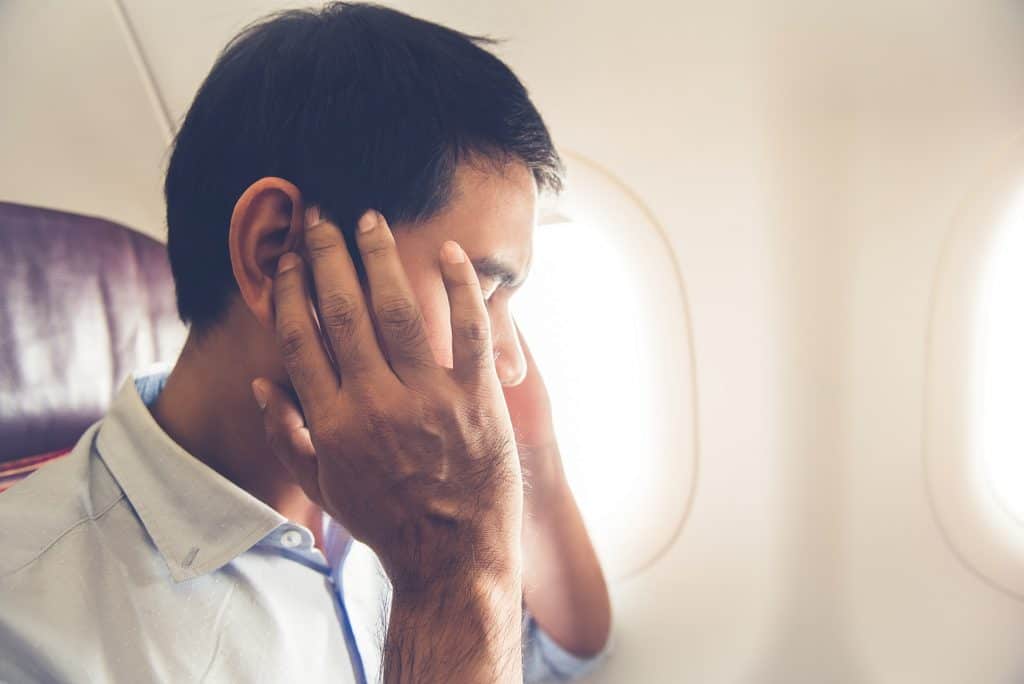We all love traveling! That excitement you get just before you take off is a wonderful feeling that keeps us coming back for more. However, the airplane experience isn’t a pleasurable experience for others. Airplane ear or ear barotrauma is a common problem that can cause you discomfort and pain during your flight and even leave you unable to hear after your flight.
Airplane ear occurs when there is an imbalance between the external pressure and the pressure within your middle ear. This means that airplane ear usually occurs when the plane is ascending or descending. At Hearing Group, we are experts in hearing health, so we thought we would help answer the question — “why can’t I hear after a flight?”.
Symptoms of Airplane Ear
Airplane ear is a painful yet common problem that can really put a dampener on the start of your holidays and even leave you wondering — “why can’t I hear after a flight?”. These are some of the most common symptoms to look out for when it comes to airplane ear.
- Discomfort or pain
- Stuffy or blocked ear
- Difficulty hearing
- Dizziness.
If you are suffering from a severe case of barotrauma, or it progresses and is left untreated, you may start to experience more severe or dangerous symptoms. These include:
- Eardrum damage
- Hearing loss
- Nosebleeds.
Causes of Airplane Ear
You might have heard of the eustachian tube before? It helps restore your equilibrium during pressure changes. However, when this tube becomes blocked, you can experience ear barotrauma. That is because the ear’s pressure is different from that of the external environment.
Although barotrauma is a common experience on airplanes due to the constant changes in cabin pressure, it also regularly occurs during the following activities:
- Scuba diving
- Driving at altitude
- Hiking/climbing.
How to Prevent Airplane Ear
Thankfully the majority of the time, airplane ear will heal by itself without the need for medical attention. However, you can use some tips and tricks for immediate relief. To relieve the difference in air pressure:
- Use breathing techniques
- Yawn
- Drink plenty of fluids to encourage swallowing
- Chew gum or suck a sweet
- Take antihistamines or decongestants.
Some airplane ear sufferers might be able to ask their doctor to prescribe steroids or antibiotics — particularly if they previously couldn’t hear after a flight. These medications will help prevent inflammation or infection of the eustachian tube.
For the most severe cases, it might be necessary to undergo surgery and fit small cylindrical-shaped tubes throughout the eardrum. These tubes are called ear tubes, tympanostomy tubes, or grommets, and they work by facilitating airflow through the middle ear.
Problems with hearing loss or your ears can be distressing, especially as you embark on a trip or look forward to a relaxing holiday. If you can’t hear after a flight, have changes to your hearing, or want more information about your hearing, contact Hearing Group or visit one of your local hearing aid centers.
Book your appointment at Hearing Group and let us answer your hearing health-related questions.


